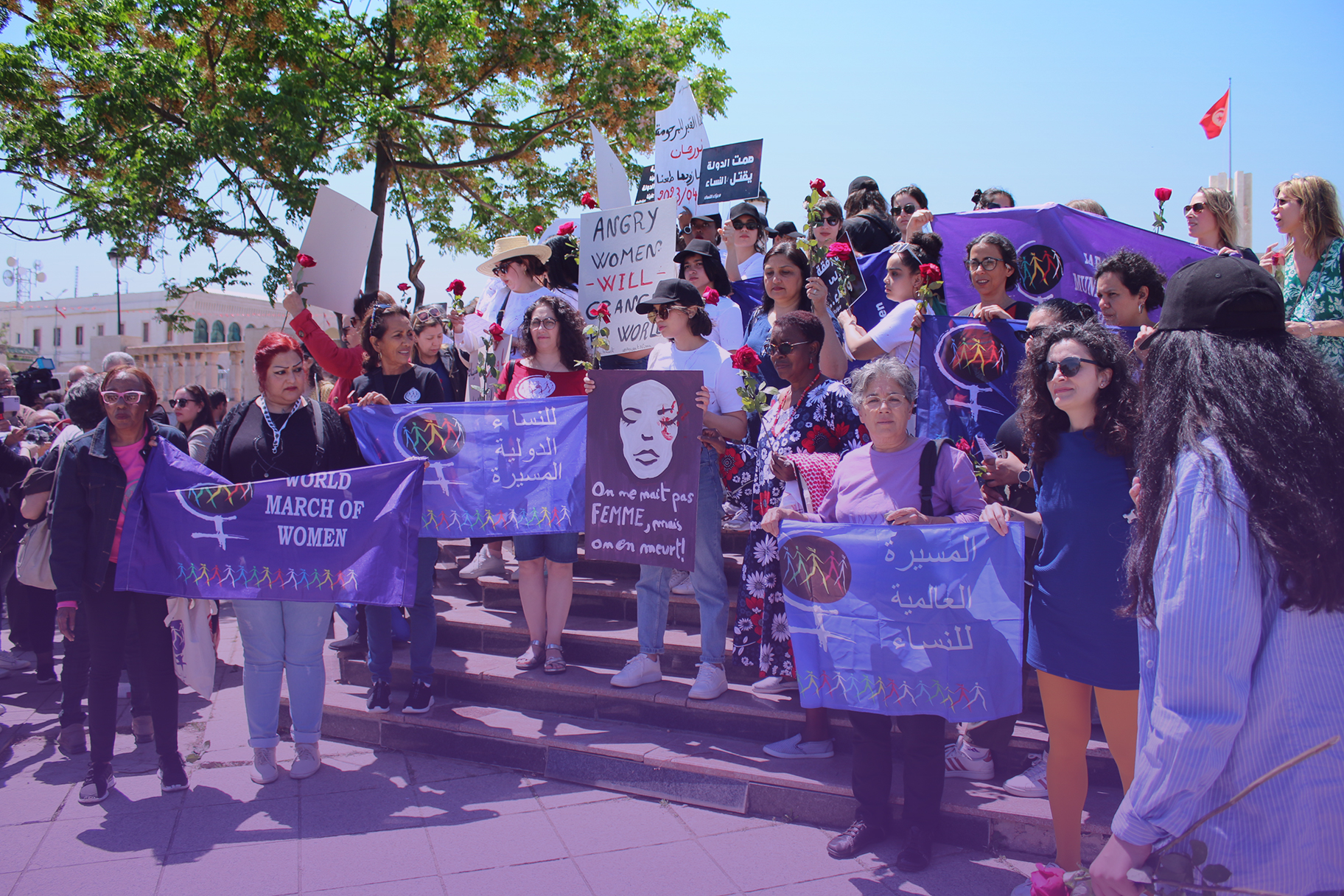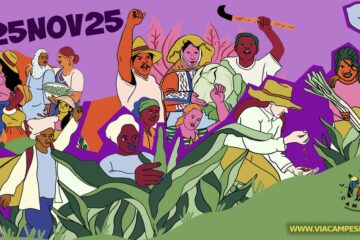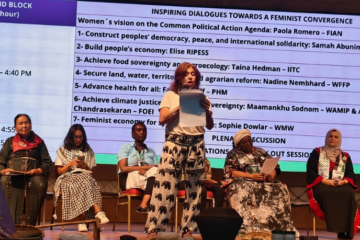On this year, we celebrate our 25th anniversary as the World March of Women, with our slogan: “The Strength of Feminism To Transform the World.” Our grassroots feminist movement came together in 1998, in a decade known as the heyday of neoliberalism. We as feminist said “no!” and proposed an alternative and built the first feminist movement against neoliberal policies at a global level.
While there seemed to be a supposed consensus around an institutionalized feminist agenda under the umbrella of the UN, the grassroots groups that answered the call for the creation of the World March of Women shared a critical view of how, in the name of women’s rights, the offensive of neoliberal globalization was being legitimized and strengthened. We were feeling it in each of our countries, in our daily lives.
What brought us together was our struggles against the root causes of poverty and violence against women. By doing that, we confronted capitalism and patriarchy as a system, and not only it impacts on women’s lives. Our strength comes from our very clear political vision along with our grassroots organization connecting local to international struggles. We are very proud for existing as a permanent international feminist movement for 25 years.
Valuesandorganizationalprinciples
We are political feminists, but autonomous from any political power. Maintaining political and financial autonomy from the very beginning is very important strategy for our movement.
Our diversity gives us strength. Five different regions are part of our movement: the Americas, Africa, Europe, Middle East and North of Africa (MENA), and Asia-Pacific. The leadership of the movement is shared inside of it. All the general decisions regarding our movement are made together with representatives from the regions. Whether these are decisions about our strategy, our international actions, our political documents that guide our processes, etc. All of these characteristics gave us the strength to survive for all of these years, and to commit ourselves to keep building this path, marching until we are all free.
Buildingouranalysisandpoliticalagenda
Our analysis of the world we are living in is very essential for our common struggle. We understand the interlocking system of oppressions: capitalism-patriachy-racism-colonialism. Our struggles fight this system, and also place our interdependence as humans within nature in the center of our alternatives. Our strategy for the struggle is consistent with the reality of women around the world. We build our movement in alliance with other international social movements; alliances that allow us to strengthen anti-capitalist struggles, placing feminism at the center.
We have been learning from local struggles, and from the knowledge and wisdom of indigenous women everywhere. Our agenda is based on the memories of our peoples and struggles. This knowledge and memory is very important nowadays because our society have become a survival society. To survive and to continue to sustain life on the planet, we need to learn from each other. And we must change the system. There is no place for women’s freedom and equality, for nature and for the respect of indigenous people’s ways of living, for peace and people’ sovereignty within capitalism.
The exploitation of our labor and bodies is interconnected with the colonization of our territories. Both our bodies and territories are subjected to the interests of the capital through violence. Violence against women, wars, and militarization are instruments to maintain this domination system, to continue the domination of the capitalist, colonialist and imperialist patriarchy.
The problems and struggles we face are global, which makes us propose solutions at global level, grounded in our territories. Pandemics, the climate crisis, extractivism and militarization are universal challenges, caused by patriarchy, capitalism, racism and colonialism. That challenge us to develop a global strategy to address these problems, while denouncing the false solution proposed by the same system, led by transnational corporations.
In this era, we need to transform the societies we live in. The transformations of societies mean, at the same time, the transformation of power relations between men and women, rich and poor towards equality and justice. At the same time, we cannot achieve that in only one country, that’s why we confront imperialism and colonialism, building an internationalist feminism based on concrete solidarity.
Feminist economy as a strategy
Our international actions and movements have given us enough courage and confidence to dare and to work within this lion cage which is the economy. The economy is at the center of power relations. Today we propose the subversion of the capitalist economy, by what we call the feminist economy. Our alternative proposal to transform this world, to go against the capitalist patriarchy, and save the lives on the Earth, not just human lives, but all lives.
What we have learned from the pandemic, and from all the natural disasters increased by the climate change (typhoons, earthquakes, flooding), or from the contamination caused by nuclear powers and weapons, is that, in order to continue living, we need each other. We are interdependent. The only way is to rebuild commons and communities with solidarity. We are also ecodependent, and part of nature. If nature is destroyed, we cannot survive. Learning from each other experiences and wisdom is important because, as Rosa Luxemburg said, “We will be victorious if we have not forgotten how to learn”.
In 2023, we are celebrating 25 year of our movement, and we are in the path of building our 13th International Meeting. We call all regions to join us in this process of global construction of our movement! We resist to live, we march to transform!

This is an edited version of Yıldız Temürtürkan’s speech delivered at the Forum on Climate Change and Militarization held by the World March of Women in Bali on May 11th, 2023. Yıldız Temürtürkan is the international coordinator of the World March of Women.




